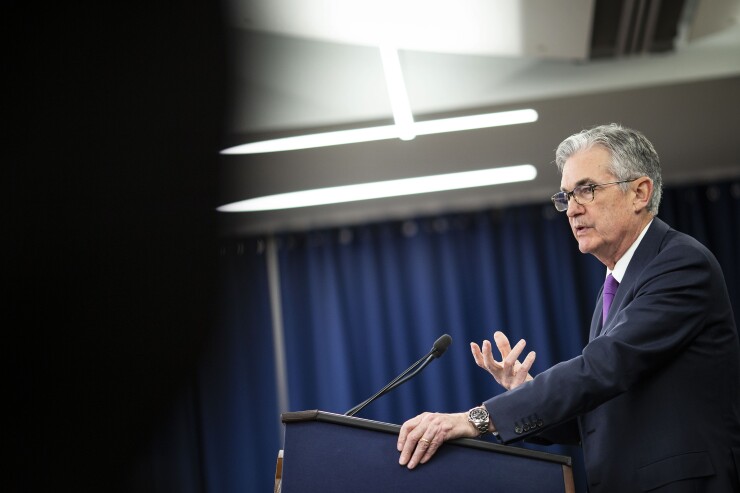WASHINGTON — The Federal Reserve's sprint to rein in inflation is nearing its end. Now comes the endurance portion of the race.
The Federal Reserve's Federal Open Market Committee voted Wednesday to increase its benchmark interest rate by half a percentage point this week, up to a target range of 4.25% to 4.5%.
In doing so, the FOMC broke a streak of consecutive 75-basis point increases during its last four meetings. The move follows a string of speeches from Fed Board members and reserve bank governors calling for "moderation" to its rate hiking schedule.

The Fed has now increased its benchmark interest rate by 4.25 percentage points this year, a rate not seen in decades. Chair Jerome Powell said more increases will be necessary, but the Fed is less concerned about getting rates to a restrictive level and more focused on determining how long they must remain there.
"It's now not so important how fast we go, it's far more important to think [about] the ultimate level, and then, at a certain point, the question becomes, how long do we remain restrictive?" Powell said during his post-meeting press conference Wednesday afternoon. "That will become the most important question. But, I would say the most important question is no longer speed."
The speed of rate increases has been a
"As monetary policy tightens globally to combat high inflation, it is important to consider how cross-border spillovers and spillbacks might interact with financial vulnerabilities," Brainard said at the time.

Powell has
Powell said the decision to shift to a 50-basis point hike was based on the response of interest-sensitive sectors and a desire to see how increases implemented thus far play out.
"We're seeing the effects on demand in the most interest-sensitive sectors in the economy such as housing," he said. "It will take time, however, for the full effects of monetary restraint to be realized, especially in light of a cumulative tightening of monetary policy and the lags with which monetary policy affects economic activity and inflation."
He noted that a half percentage point is still, historically, a significant increase.
The smaller rate hike came after the second promising inflation report in as many months was released. The Bureau of Labor Statistics' consumer price index
The Fed's quarterly summary of economic projects, or SEP, which was also released on Wednesday, shows that Fed leaders have changed their expectations about the state of the economy in recent months.
The survey of Fed Board members and reserve bank presidents shows expectations for inflation were slightly higher in this week's survey than September. Likewise, they anticipate the federal funds rate being higher at the end of next year than they had previously projected, with 17 of 19 members saying they expect the midpoint range to be 5.13% or higher, compared to zero who felt it would be that high in September.
Yet, while this trajectory is promising, Powell said the FOMC will need to see this trend play out over a much longer time frame before it contemplates pausing or reversing its monetary tightening efforts.
"Two good monthly reports are very welcomed, but we need to be honest with ourselves that there's inflation. Twelve-month core inflation is 6% in CPI, that's three times our 2% target," he said. "Now, it's good to see progress, but let's just understand we have a long way [to go] to get back to price stability."




